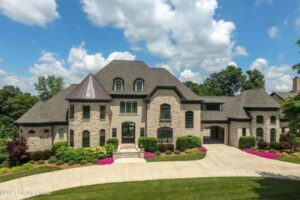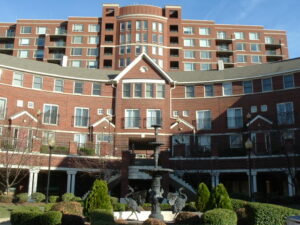You know the saying, “You get what you pay for”? Well, in the world of HOAs, that couldn’t be more accurate. One of the most critical, yet often overlooked, factors in maintaining or increasing property values is the well-being of your HOA’s financial health. That’s where reserve studies for HOAs come into play.

Reserve Studies for HOAs
These studies may sound dry, but trust me—they’re the lifeblood of an HOA’s financial health, and ultimately, they’re key to preserving the value of every home in your community.
So, let’s dive into why reserve studies for HOAs aren’t just paperwork but powerful tools that protect and enhance property values in HOA communities.
Understanding Reserve Studies
Just in case you didn’t know, HOA stands for Homeowner Association. Follow that link to learn more about what an HOA is and how it works. With that out of the way, what exactly is a reserve study?
In simple terms, it’s a long-term financial plan for your HOA. It assesses the condition of major community assets like the roof of the clubhouse, swimming pools, playgrounds, and even those beautifully manicured lawns. Then, it estimates how much money the HOA needs to save in its reserve fund to cover future repairs and replacements. Think of it as a financial roadmap that guides your HOA through the murky waters of unexpected expenses.
Without a proper reserve study, your HOA might get caught off guard when a major repair pops up. And guess who ends up footing the bill when that happens?
That’s right—you, the homeowners! Special assessments (those surprise fees that everyone dreads) come into play, and suddenly, the community’s financial health—and home values—are at risk.
The Financial Health of an HOA
When potential buyers look at homes in HOA communities, they’re not just evaluating the houses themselves; they’re also sizing up the financial health of the HOA. No one wants to buy into a community that’s teetering on the edge of bankruptcy, right?
A well-funded reserve sends a clear message: this HOA is responsible, prepared, and financially stable.
Buyers want peace of mind, and a strong reserve fund offers exactly that. It shows that the HOA is planning for necessary repairs and replacements, meaning homeowners won’t be blindsided by sudden costs. A financially healthy HOA equals a financially sound investment for buyers, which can help homes sell faster and at higher prices. That’s a win-win!
Connection Between Reserve Funds and Property Maintenance
Here’s a scenario for you: imagine two HOA communities. In one, the tennis courts are freshly resurfaced, the landscaping is lush, and the common areas look brand new. In the other, the pool deck is cracked, the community center roof is leaking, and the roads have seen better days.
Which community do you think has better property values? Consistent upkeep and timely repairs are the result of a well-funded reserve, and they keep a community looking its best.
This doesn’t just make it a more pleasant place to live—it also makes it more attractive to potential buyers. After all, no one wants to move into a neighborhood that looks run-down. So, by maintaining shared assets, your HOA is protecting the aesthetic and market appeal of the entire community.
Reserve Studies and Homebuyer Confidence
Speaking of potential buyers, here’s a question: would you want to buy a home in an HOA community if you knew there was a risk of being hit with unexpected fees in the future? Of course not! This is why transparency around reserve studies for HOAs is so important.
When homebuyers are looking at properties, they’re not just focused on the kitchen countertops or backyard size—they’re also interested in the long-term financial stability of the HOA. An updated reserve study reassures buyers that the community is financially sound and well-prepared for future expenses. In contrast, an outdated or missing reserve study can make buyers wary, potentially driving them away or lowering the offer they’re willing to make.
Effect of Reserve Studies for HOAs on Long-Term Property Value Appreciation
Now, let’s talk about the long game. Real estate is an investment, and like any investment, you want it to appreciate over time.
Guess what? A well-maintained reserve fund helps ensure that appreciation happens. When an HOA properly funds its reserve, it creates a financial cushion that keeps the community thriving year after year. This stability fosters steady property value growth.
On the flip side, underfunded reserves can lead to neglect, resulting in deteriorating common areas, special assessments, and disgruntled homeowners—all of which can stymie property value growth. Essentially, a healthy reserve fund is like an insurance policy for your home’s value.
HOA Reserve Funds and Market Competitiveness
In today’s competitive real estate market, having an edge can make all the difference. For HOA communities, that edge often comes in the form of a solid reserve fund. Well-funded HOAs don’t just attract buyers—they attract serious buyers who are looking for long-term stability and a hassle-free ownership experience.
The presence of a strong reserve study can set one community apart from another, giving it a competitive advantage in the market. With buyers feeling increasingly cautious about large, unexpected expenses, an HOA with its financial house in order becomes a much more appealing option.
Conclusion
So, there you have it! A well-maintained reserve fund, built on the foundation of a comprehensive reserve study, is not just a nice-to-have—it’s essential for protecting your property’s value and keeping your HOA community financially sound. Think of reserve studies for HOAs as your secret weapon, safeguarding against unexpected expenses and ensuring long-term growth.
If you’re part of an HOA board or even just a homeowner, encouraging your community to prioritize these studies can have a ripple effect, benefiting everyone. After all, wouldn’t you prefer to live in a community where financial surprises are a thing of the past? With tools like PropFusion offering user-friendly ways to manage reserve studies, there’s no excuse not to ensure your community is in the best possible financial health.
Remember, keeping those reserve funds strong isn’t just about maintenance—it’s about building the future. And when you’re looking to sell or buy, that future translates directly into dollars and cents. Now that’s what I call a solid investment!



